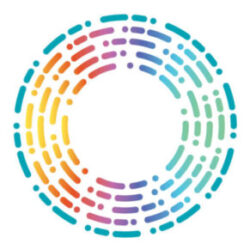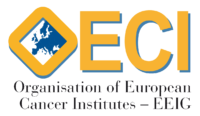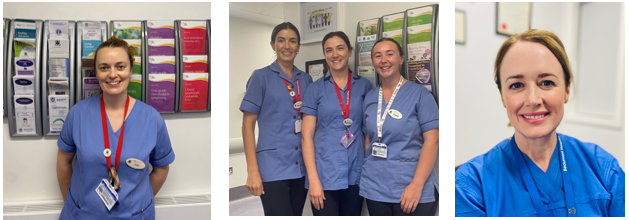
The Haematology Department in Beaumont looks after patients with blood cancers and other blood disorders. There is one Advanced Nurse Practitioner and five Clinical Nurse Specialists and we work with seven Haematology Consultants, their non consultant hospital doctors and a wide multidisciplinary team to support patients that come to our service either in St Teresa’s Haematology Inpatient Unit and the Coleman K. Byrne Haematology Day Unit.
St Teresa’s has fourteen individual isolation HEPA- filtered rooms and the Coleman K. Byrne Day unit has three consultation/procedure rooms and nine treatment chairs. We see and treat up to 45 patients every day and also have five outpatient clinics every week.
Throughout these areas, our team diagnose, manage, monitor and support haematology patients with a range of conditions by providing chemotherapy, immunotherapies, transplants and supportive treatments.
Particular areas of focus for Haematology CNS include:
- Transplant (autologous and allogeneic)
- Patient education regarding diagnosis and treatment
- Linking patients with other members of the multidisciplinary team where this is needed e.g. social work, physiotherapy.
- Support our patients throughout their diagnosis and treatment
- Teaching other staff
- Being a link for patients that need help and advice through the Telephone Triage service
A Bit About Us!
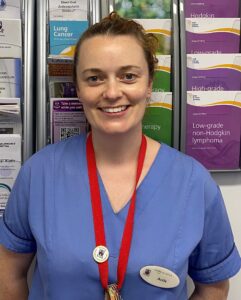 |
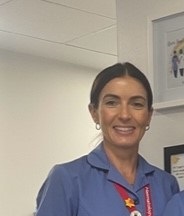 |
| Aoife Mc Cormack Frances Martin
We are Clinical Nurse Specialists and our role is to coordinate bone marrow transplants. The cell treatments that are available to our patients at present are autologous stem cell, allogeneic stem cell and CAR T cell therapies. Autologous stem cell transplants are used as treatment in patients with multiple myeloma, amyloidosis and lymphoma. It is a process where once the patient’s condition is under control, we stimulate their bone marrow to produce stem cells and harvest them peripherally. The patient then receives these cells back as a form of rescue following high doses of chemotherapy with the aim of achieving a deeper/prolonged remission. Allogenic stem cell transplants are used as treatment for various forms of leukaemia and lymphoma. This involves the patient receiving high doses of chemotherapy with or without radiation therapy to weaken their bone marrow, following that they receive stem cells which have been harvested from a matched donor. The aim is to replace the patient’s defective marrow with the donor cells to achieve remission. Car T cell therapies are a relatively new form of treatment for the past 2 years in Ireland, where in the patients T cells are harvested, modified in a laboratory to make the patients cancer cell their new target, and then reinfused to the patient following chemotherapy. Currently it is available to particular lymphoma and leukaemia groups in Ireland but is being used to treat a variety of haematological conditions worldwide. We liaise with external referring hospitals, notably Our lady of Lourdes hospital, Connolly hospital and Blackrock Health at the Hermitage Clinic, to facilitate these treatments in conjunction with St James hospital stem cell transplantation service |
|
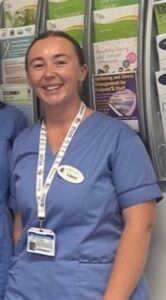 |
Laura Mc Kiernan
I am a Clinical Nurse Specialist and I support and educate patients with a newly diagnosed or relapsed blood cancer. I meet patients after receiving their diagnosis and before they start treatment in the inpatient or outpatient setting. I help my patients to understand their medications, prepare them for treatment side effects and provide advice on symptom management. |
| I also make sure they are aware of all the support resources available here in the hospital and in the community, ensuring they are appropriately referred from the beginning of their cancer journey.
Cancer information can be extremely overwhelming to take in, and it is difficult to retain all of the information during such an uncertain time. Therefore, it is so important that family members or loved ones are involved in the continual education and information process. I am learning a lot about what is important to patients on diagnosis. I am developing a patient experience survey in order to get feedback that I will use to improve my practice and to plan for the future of this service, ensuring the development of a sustainable patient focused service. |
Marie Clare Mc Evoy
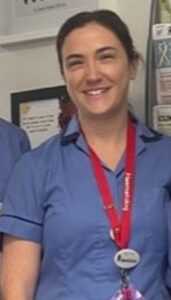
I am a Clinical Nurse Specialist and my role is to manage the Telephone Triage service which is for Haematology patients on active Systemic Anti-Cancer Therapy (SACT) and other haematology patients. I started in this role, which was set up in response to the COVID-19 pandemic to decrease hospital/ED attendance for our patients, in 2020. We have successfully introduced the UK Oncology Nurses Society (UKONS) telephone triage tool to grade symptoms and side effects of treatment, and direct the care of patients who are unwell at home. Advice is then given to patients on how to proceed. This may just be general advice and support or to go to their GP or local Emergency Department. All patients receive education regarding the importance of reporting disease symptoms and side effects of treatment to the contact numbers. The service is available 24/7 365 days a year. Out of hours is provided by St. Teresa’s haematology inpatient ward and CKB haematology day unit alongside the Haematology and Oncology medical on-call team. I follow up all calls the next working day either by phone or in person if the patient has been admitted.
Avril Furey
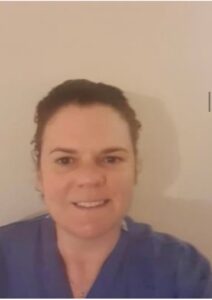
The main focus of my role as Haematology CNS is on early detection and survivorship in patients with haematological malignancies. Early detection of blood cancers leads to improved patient survival and access to services for diagnosis within Beaumont Hospital. This role will improve the patient journey from the community to cancer diagnosis, and facilitate the early detection of new cancers and relapsed cancers. It will also facilitate the development of a survivorship service to meet the increasing needs of patients who live longer on novel therapies. An important aspect of survivorship is effective patient education which lays the foundation for a better patient journey.
Rachel Fox
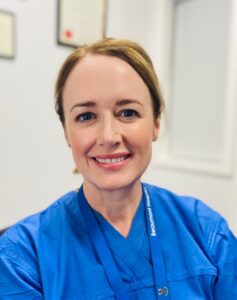
I have been in post as an Advanced Nurse Practitioner (ANP) in haematology since 2018, and provide a complete episode of care to patients’ with Myeloproliferative Neoplasms (MPN’s) and many other blood cancers attending CKB haematology day unit and the outpatient haematology service. As an ANP I provide an outpatient service for patients’ with stable blood cancers to facilitate comprehensive review, assessment, diagnosis, investigation and treatment, as well as striving to meet social and psychological care needs. This service is delivered with the oversight of the Consultant Haematology team, considering international best practice guidelines and evidence based research applied to the patient review process, whilst providing a timely, safe and effective service. I work autonomously with medical and nursing teams, with focus on improving patient care and patient satisfaction, contributing to the continuous improvement of the quality of care experienced by patients and their families.
I believe promoting patient centered care, educating patients’ locally and nationally on disease specific issues, and linking with appropriate patient advocacy groups and community services, are core to effective chronic disease self-management for patients at home with haematological malignancy.
Categories
Latest News
-
May 8, 2024
-
March 26, 2024
-
February 19, 2024
-
January 30, 2024
-
January 24, 2024
-
January 10, 2024
-
January 22, 2024
-
January 31, 2024
-
November 27, 2023
-
October 3, 2023
